A while back, someone asked me about Ayla, a prehistoric playable character in Chrono Trigger. The question was about a common fan theory:
I’ve heard Ayla is canonically bi in the Japanese version, though I could see this being misconstrued by a bad translation since there’s a lot of “Chrono Trigger Uncut” ROMs floating around and many of them are filled with mistakes.
The context is that when Ayla hits on Crono for the first time, she mentions liking strong men and strong women equally. If Lucca is in the party, she says something like “Oh! I’m not into that sort of thing!” I see it mentioned on a few sites without any actual source. Could you confirm or bust this?
I haven’t played the game in a while, so I first took a look at Japanese comments online. I couldn’t find any talk about Ayla’s sexual orientation at all. The only character whose sexual orientation ever came up was the villain known as “Mayonna” in the Japanese version, also known as “Flea” in the English version.
Meeting Ayla
The key scene in question is when you meet Ayla for the first time. You can have a variety of party members when this scene unfolds, but for our purposes, it’s easier to analyze if both Marle and Lucca are in the party:
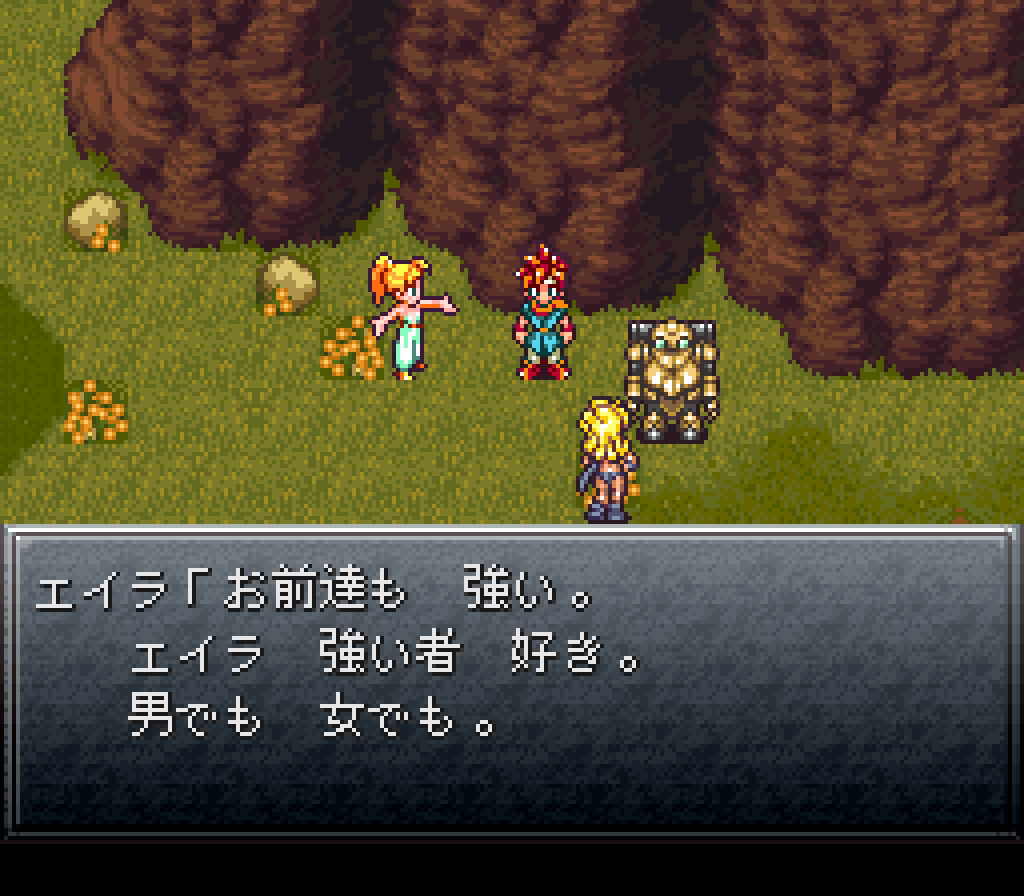 | 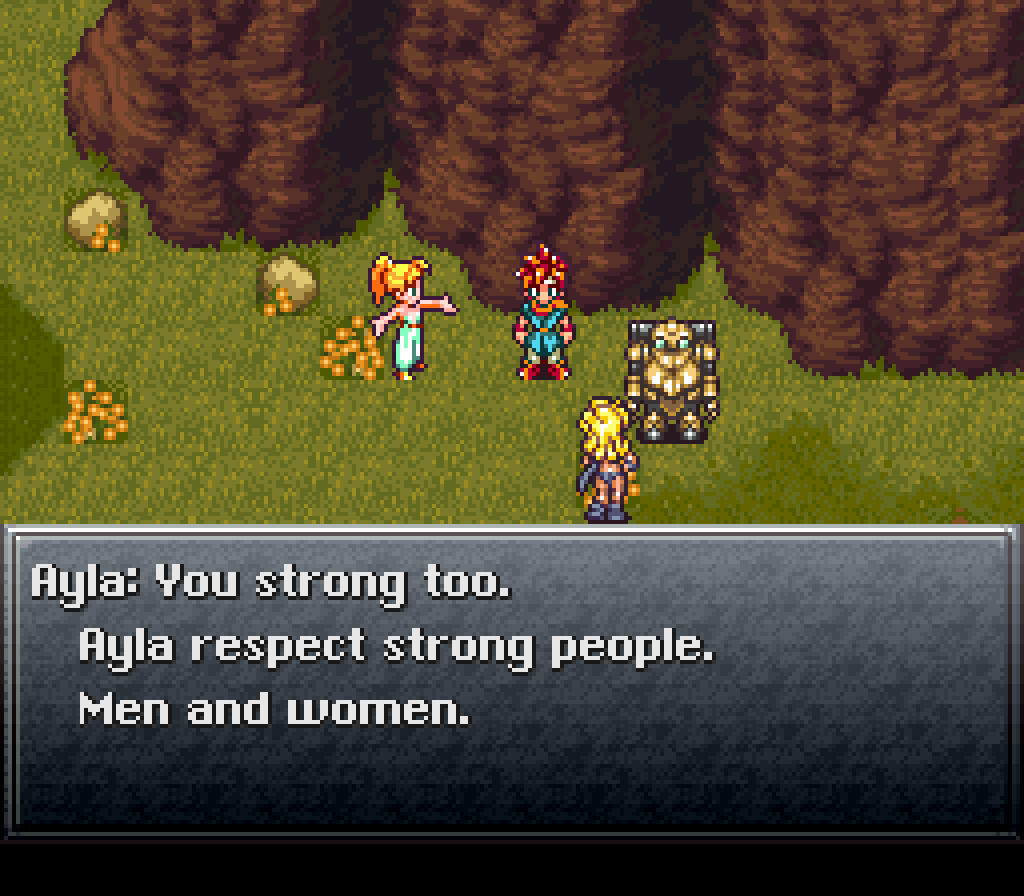 |
| Japanese Version (basic translation) | English Translation |
| Ayla: Me Ayla. Ayla like strong men. So Ayla like Chro. | Ayla: Me Ayla. Ayla like strong people. So Ayla like Crono! |
| Marle: G-get away from her, Chrono! | Marle: Get away from her, Crono! |
| Lucca: She’s taken a real liking to you, Chrono… | Lucca: I think she likes you, Crono… |
| Ayla steps away and shakes her head | |
| Ayla: You people strong too. Ayla like strong people. Whether man or woman. | Ayla: You strong too. Ayla respect strong people. Men and women. |
| Marle laughs | |
| Marle: Ohhh, so that’s what you meant. | Marle: Oh, brother… |
| Lucca: I- I’m not into that sort of thing! | Lucca: Where have they been keeping her? |
In the Japanese script, it’s pretty clear that Ayla is saying that she likes anyone who is strong, but not necessarily in a sexual or romantic way. She just likes people who are strong, simple as that. Marle misunderstands at first, but then realizes her mistake at the end. Lucca has a similar misunderstanding and assumes that Ayla is bisexual, but doesn’t seem to recognize the misunderstanding.
In the English version, Ayla says she “likes” Crono but “respects” the girls. And because this change sidesteps the misunderstanding found in the original text, Marle and Lucca had their responses changed too. The result: the English version avoids the original, intended bisexual misunderstanding altogether.
Final Thoughts
The text changes in the English version of this Chrono Trigger scene seem intentional, so I assume they’re why English-speaking fans believe Ayla was originally bisexual in the Japanese version. From what I can tell, at least, the original Japanese text says nothing about her sexuality at all – it’s just an initial misunderstanding by two main characters.
With that said, there is still some wiggle room in the Japanese phrasing that could maybe allow for the “Ayla is bisexual” interpretation, but I feel that conclusion is more a case of fan over-analysis than anything else. The fact that the topic isn’t brought up among Japanese fans also points against that assumption.
Of course, many ports, videos, interviews, and supplemental materials have been released in the decades since Chrono Trigger’s debut. I haven’t kept up with any of it, so I could very well be overlooking something that was later discovered. If there’s any further information about this topic that I’ve missed, let me know!
For more translation articles about Chrono Trigger, see here. Or if you want to read more about classic Square Enix translation stuff, see here.


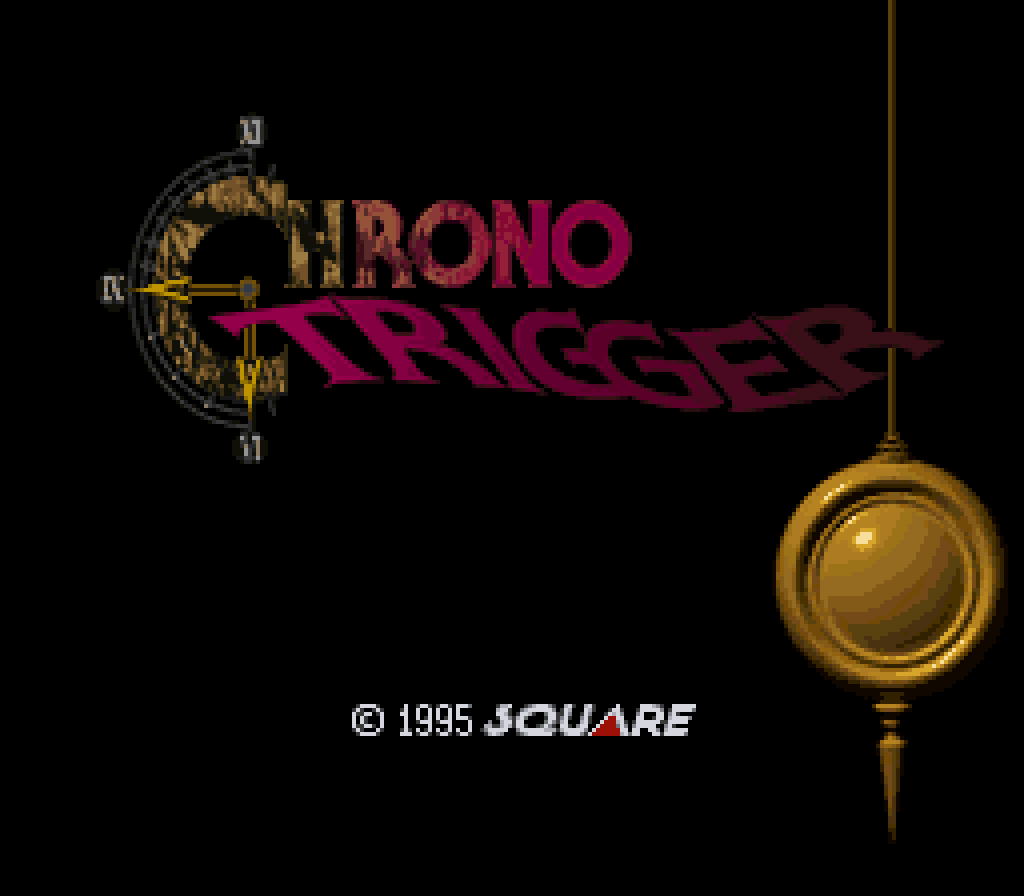
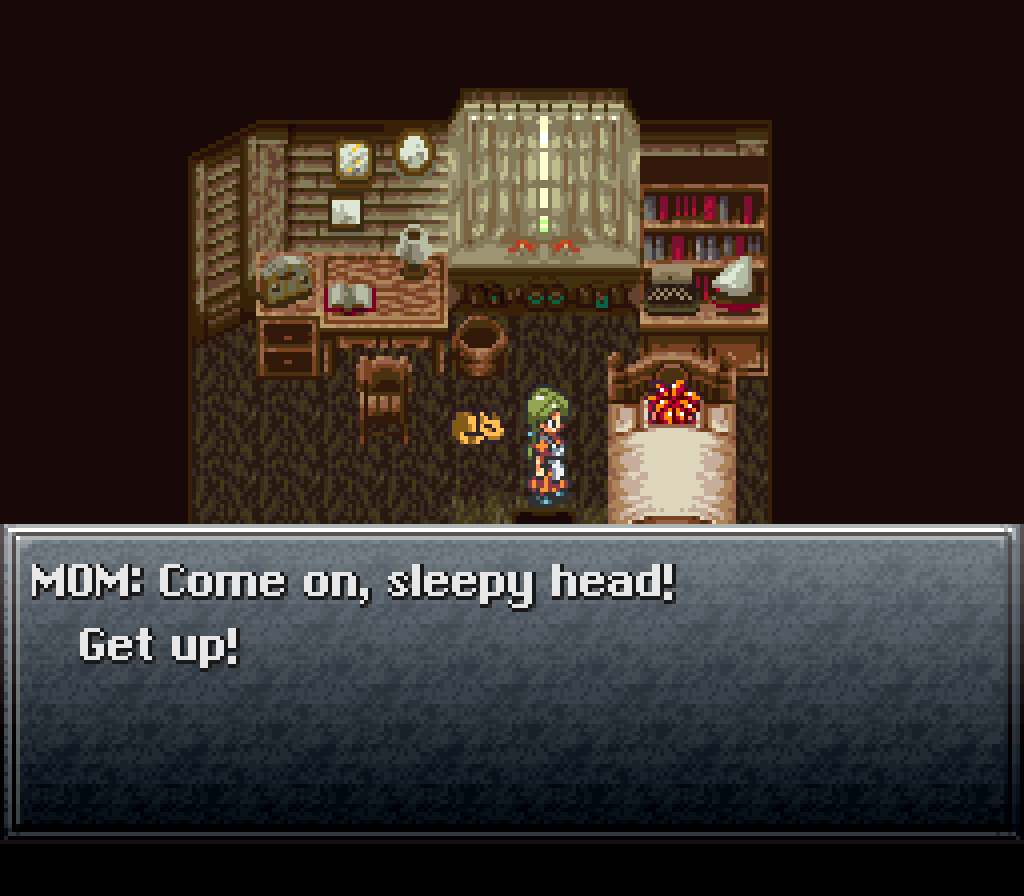
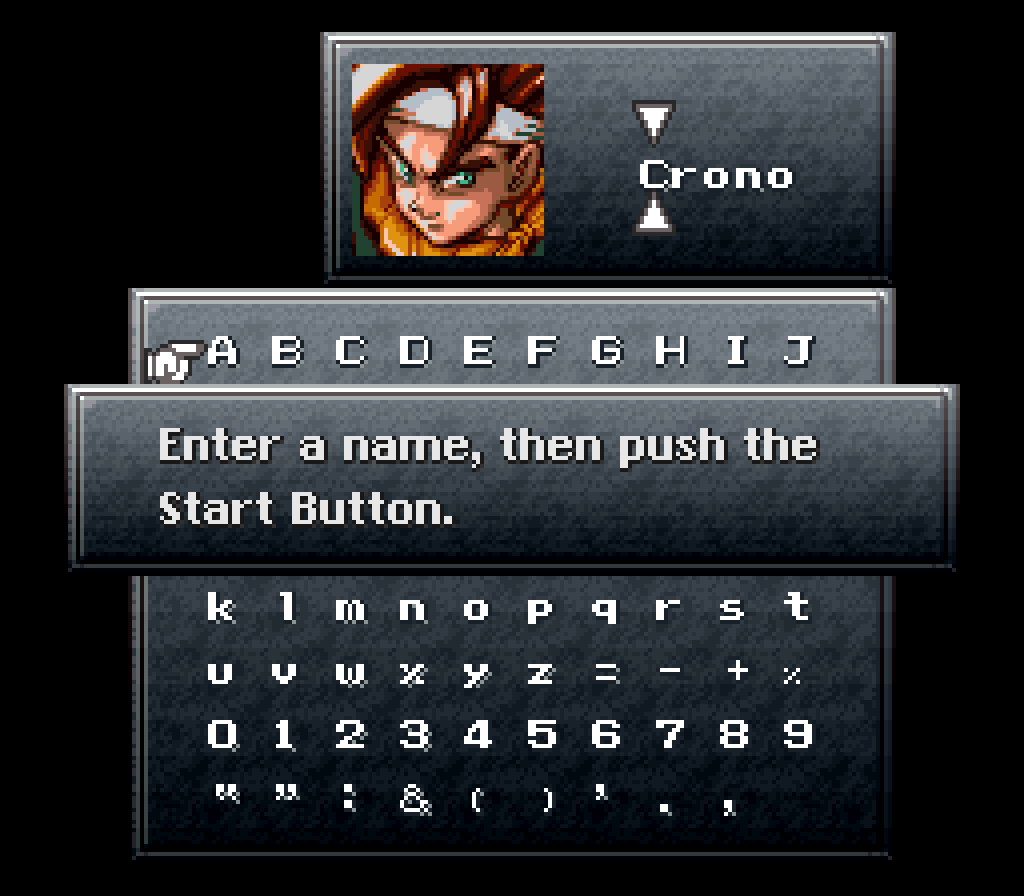
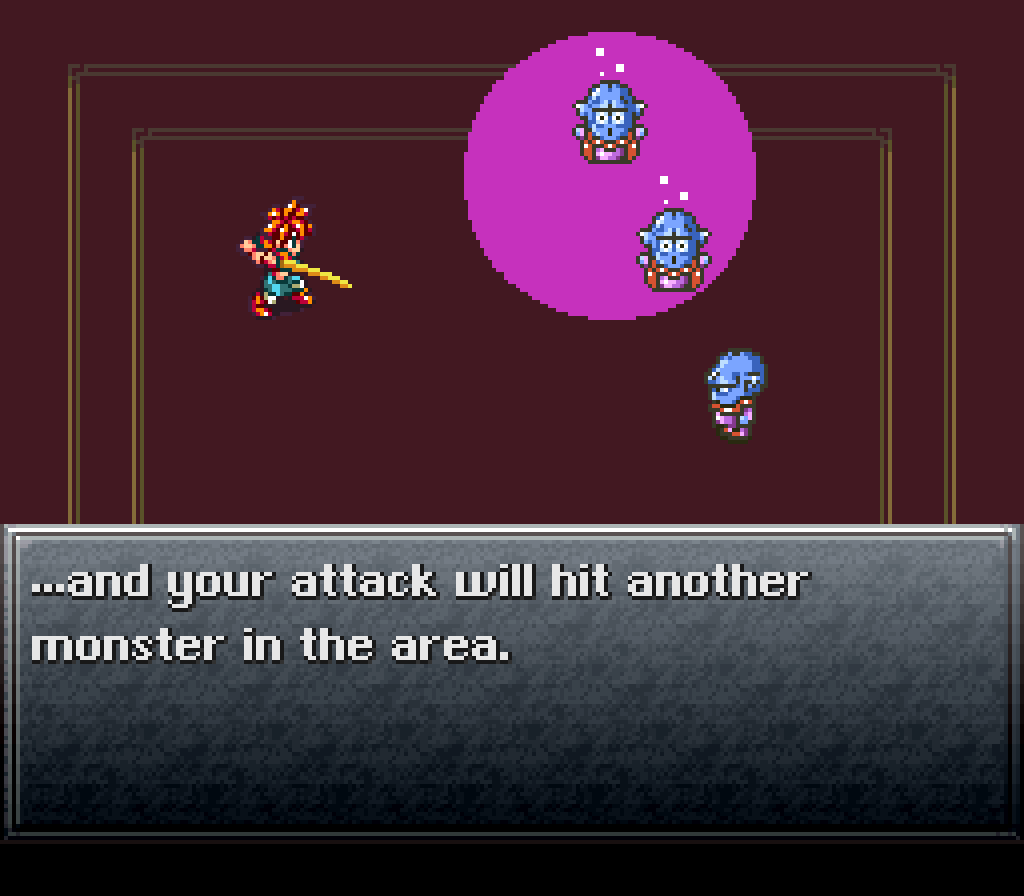
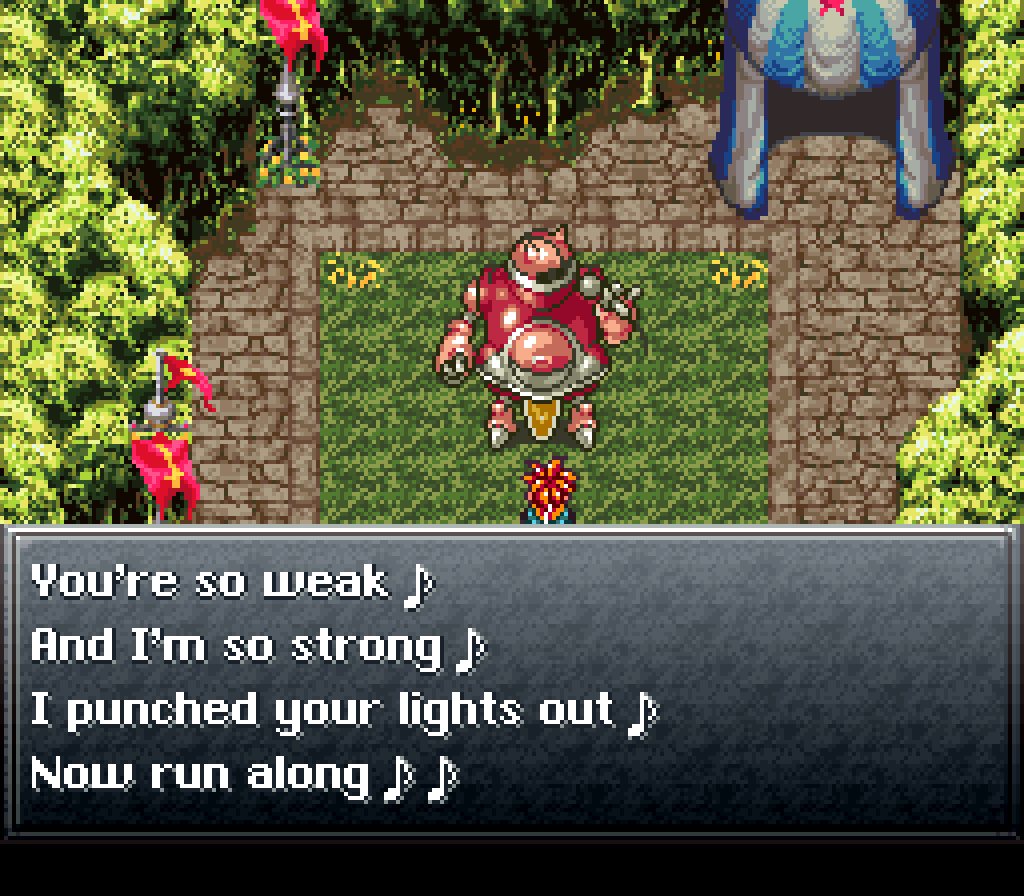
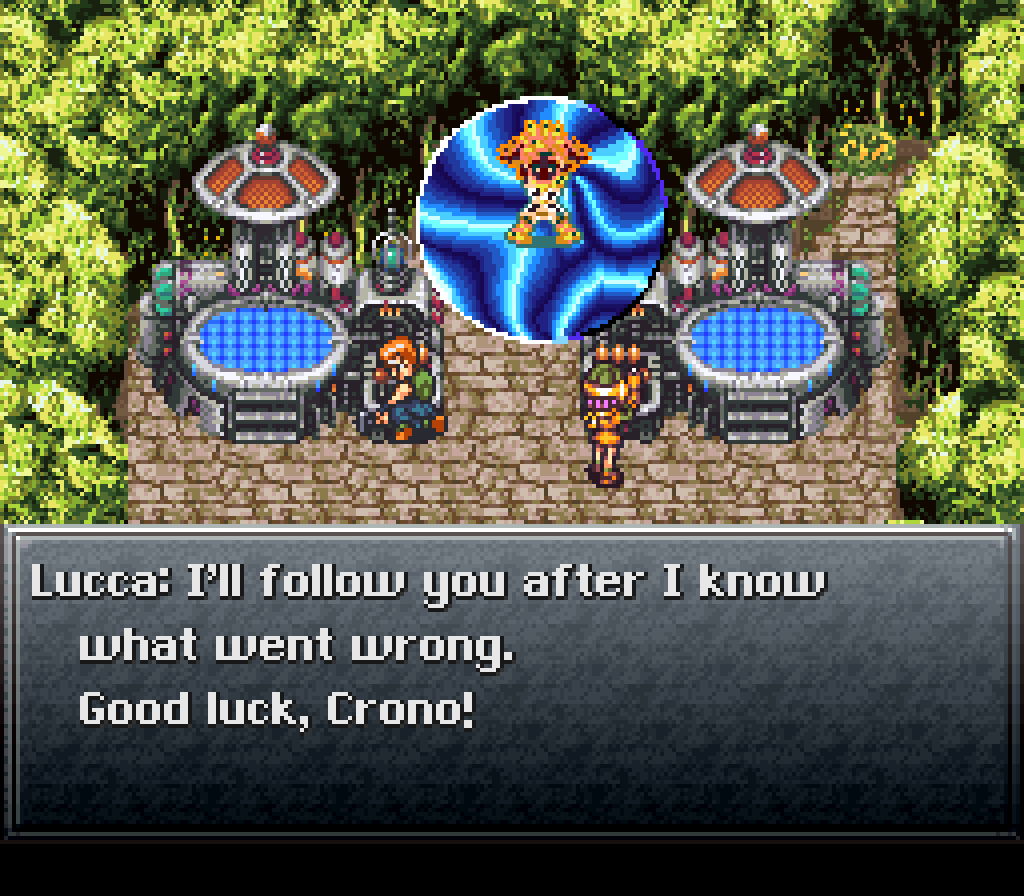
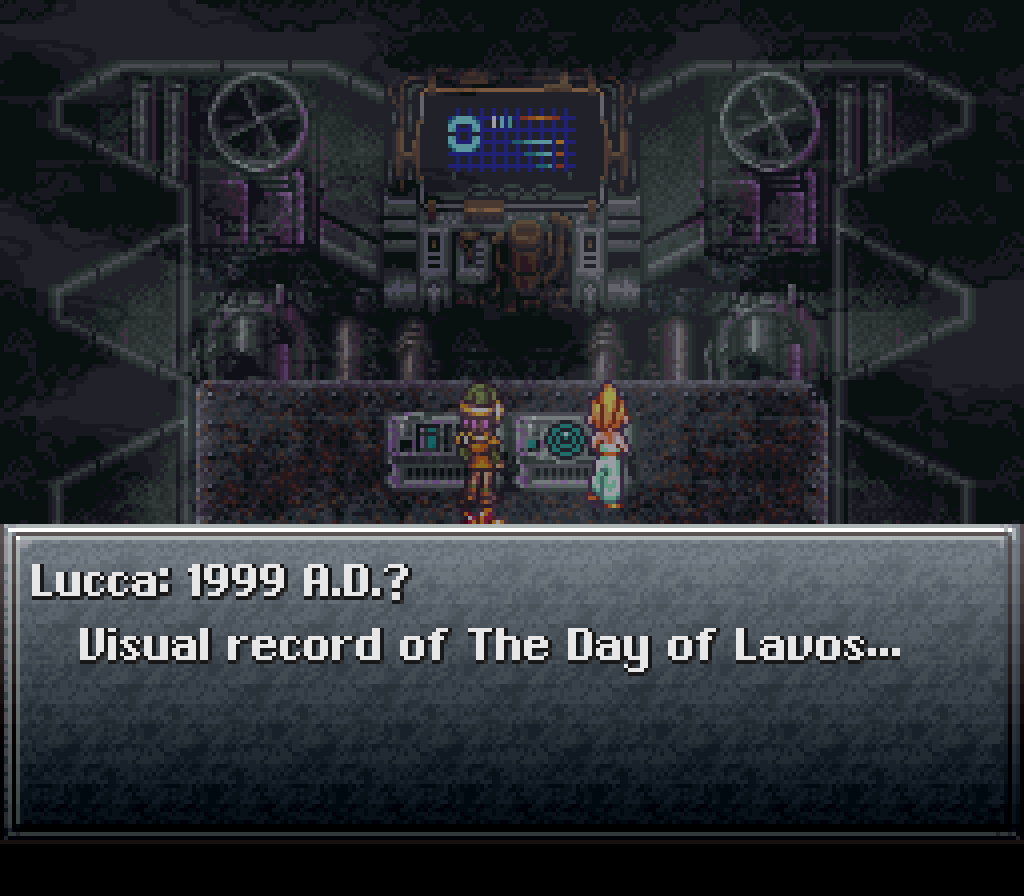
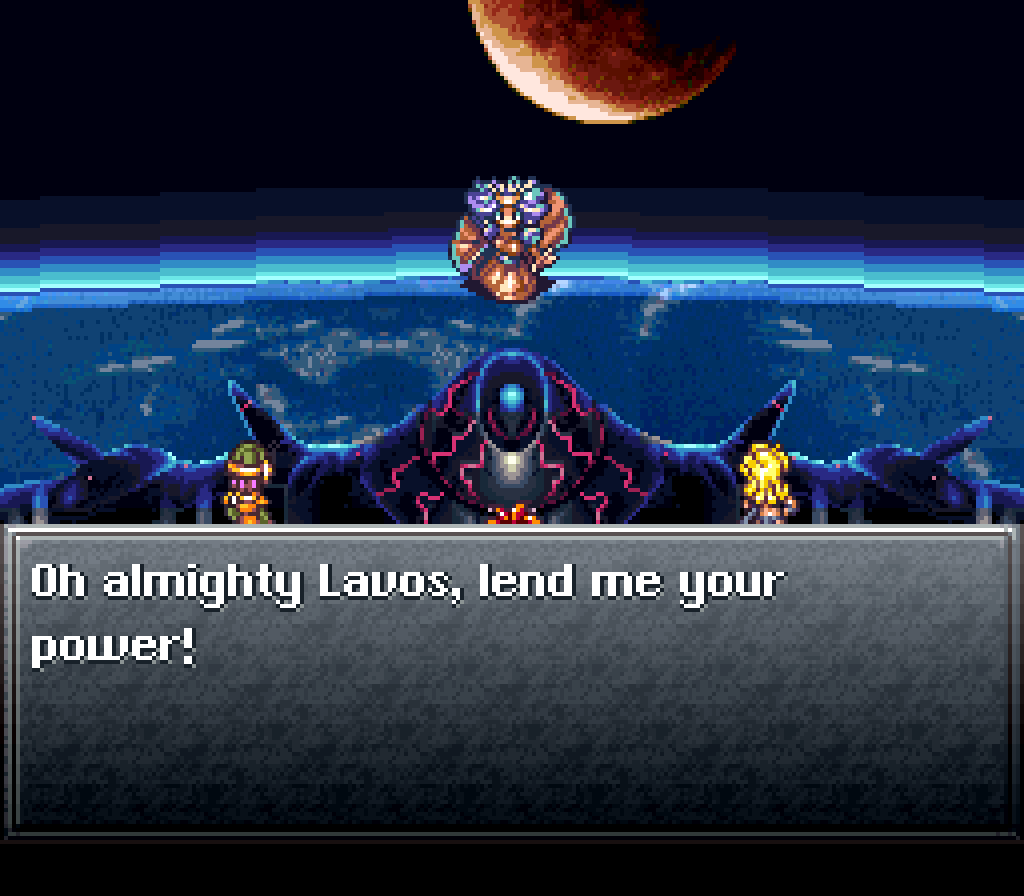
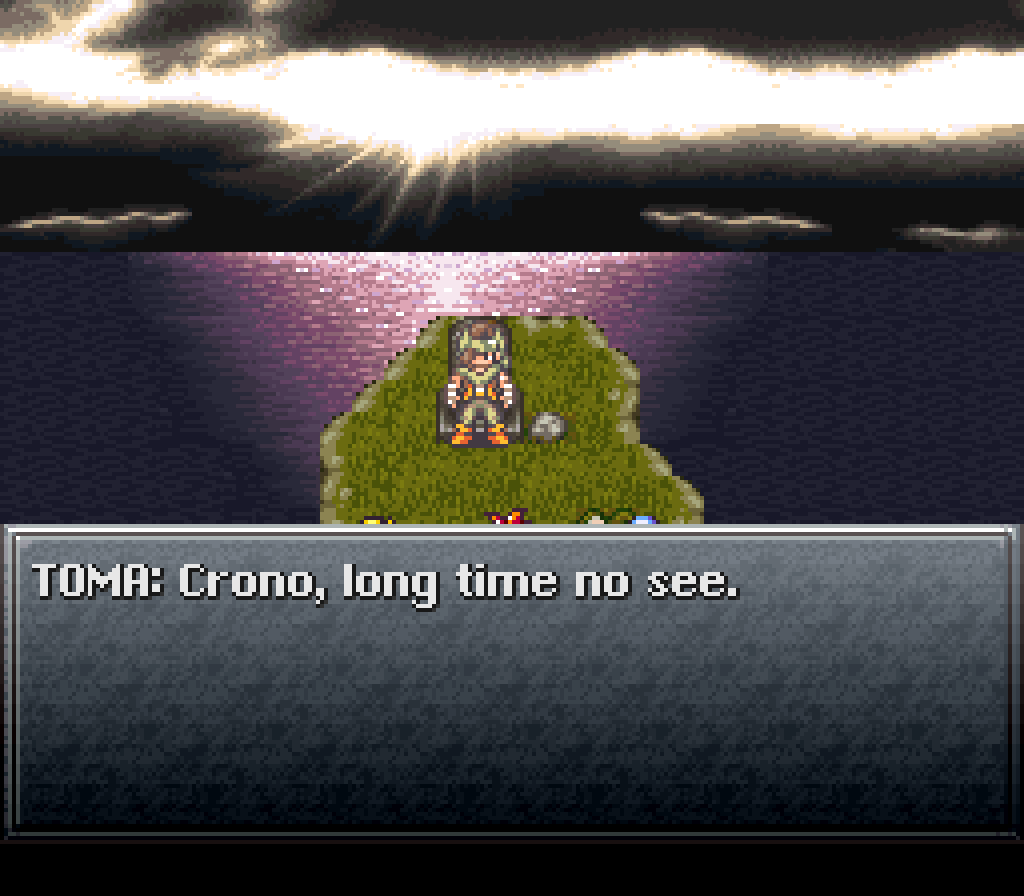
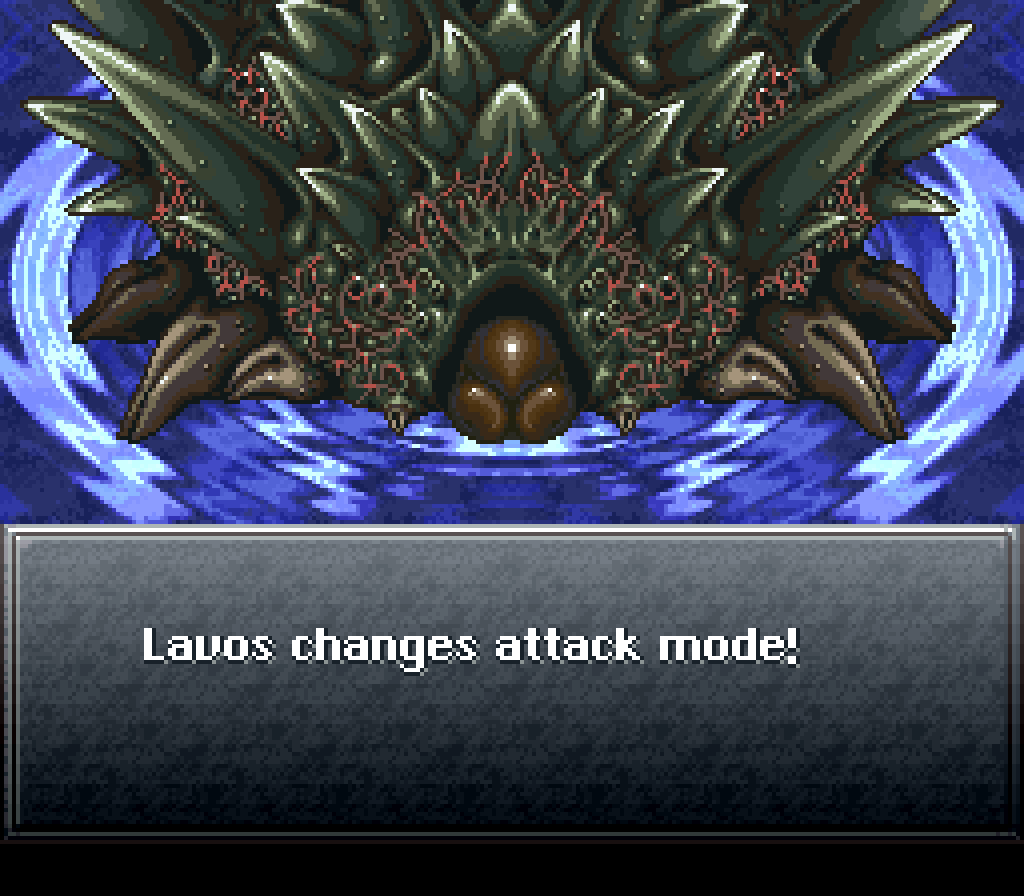
![press start to translate [Final Fantasy IV] press start to translate [Final Fantasy IV]](https://legendsoflocalization.com/wp-content/uploads/2019/08/bbenma.png)
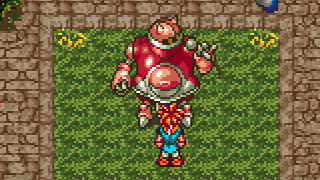
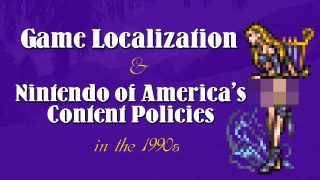
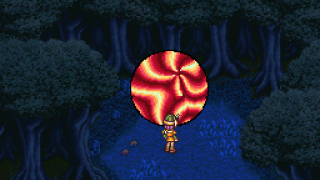
Flea is transgender in the English version too. Frog cautions the party to beware of the powerful magician woman, to which Flea replies “Hey! I’m a GUY!”
I remember audiences at the time being confused about Flea. It may just be that kids in 1995 weren’t very aware of transgender issues or terminology and didn’t know how to interpret what they were seeing. For example, if you look at the character page on tvtropes, it suggests that Flea is shapeshifted to his female-looking form, which I don’t think is mentioned anywhere.
It’s been a while since I last played Chrono Trigger, but the way that I remember it is that Flea looks and acts in a way that points to him being a female anime character, and the only thing that goes against that is that he identifies as male. Just going by that, it doesn’t seem to be more complex than Flea being transgender. Maybe you could accuse the game of playing up his sex over his gender with things like the laughing and kissing animations.
So does Flea count as more like… genderqueer then? Because If he identifies as male but is overly feminine that doesn’t make sense for him to just be a plainly trans man or woman.
I always just interpreted Flea as being a very feminine man as I was aware of that kind of stuff being in Japanese media like anime even as a kid (see some season 1 Sailor Moon villains and many characters considered “bishonen” around the 80s and 90s – even if they don’t necessarily act feminine they often have a more stereotypically “feminine” appearance).
That’s what I’m sticking with to not over-interpret: feminine-acting but male.
Maybe transgender was the wrong word, but my main point was that Flea’s gender (shockingly) wasn’t written around like Mato said in the article. He’s equally confusing in all languages.
gender is an invention by a mad scientist and paedophile that made human experiments on 2 brothers and pushed them to death,his gender theory was a proven failure that no one should take seriously
It was not invented by that guy. What he did was bad but to associate the idea of transgender just to him is ridiculous.
Weird, I remember it being the other way around; the party members thought Flea was female, only for Frog to clarify that he’s actually male, though I too haven’t played CT in quite a while so maybe I’m wrong.
Anon: Maybe it’s in the japanese script that it’s mentioned that Flea is a shapeshifter; one CT wikia claims that Frog warns the party about Flea’s appearance being an illusion before the battle began, though I can’t remember any line from him or any other character saying that.
Well, fantastically enough, it turns out that Chrono Compendium has the Japanese scripts available! Thanks Chrono Trigger nerds. Let’s try to examine some lines.
カエル「今のはマヨネーではない……。(Frog: “It isn’t the Mayonei from now…)
本物は!? (“Is it the real thing!?”)
I’m looking at this line out of context, but since you do fight a fake Flea first, who is actually an early appearance of a standard enemy. Frog seems to be saying that the Flea they just saw wasn’t Flea, so he’s wondering if this new one is the real thing.
カエル「ゆだんするな! (Frog: “Don’t get careless!)
こいつが空魔土マヨネー! (This person’s the Sky Magic Warrior, Mayonei!)
ただの女ではない。(They’re not simply a woman.)
Could this be the line you’re thinking of? I think it points more towards the idea that you should take him seriously because he’s a powerful magician, and not underestimate him because he looks like a woman. It seems like a bit of a stretch to extend just this line into Flea being a shapeshifter.
マヨネー「ムキーッ! (Mayonei: “Grr…!)
ど~せ、あたいは男ヨ! (Hey, I’m a man!)
This is the line which seems to point at Mayonei being transgender, but it also shows how the game is all over the place about it. He’s using female speech patterns, like referring to himself by the feminine “atai” and ending his sentence with “yo” rather than “da yo”. In fact, his text comes across as a flirty, with lots of dragged out sounds and hearts in other lines.
マヨネー「フフン、けど女でも男でも (Mayonei: “Heheh, but whether it’s a woman or a man)
強い者は美しいのヨネ~。(strong people are beautiful, huh.)
This follows the player’s party reacting with surprise or confusion at Flea’s gender. It seems less like a declaration of anything about the character’s identity and more that they aren’t really overly concerned with their identity.
マヨネー「あ~ら、これはみなさん (Mayonei: “Ahh, everyone,)
おひさしぶりネ~。(It’s been a long time.)
しつこいコは、オネーサン (Persistent children, big sister)
キ[heart]ラ[heart]イ なのヨネ~。(H ❤️ A ❤️ T ❤️ E ❤️ S.)
Here, he seems to be referring to himself as “big sister” – again, it really seems like they weren’t putting much effort into keeping their story straight with Flea’s identity.
Maybe it’s said by another character, but I didn’t see any lines suggesting at the shapeshifting story here. It seems more that there’s one little gag scene where Flea notes that he’s transgender, but they were otherwise written as if they were a female character.
“it really seems like they weren’t putting much effort into keeping their story straight with Flea’s identity”
Yeah, I wasn’t expecting much. I just thought there might be more to his character in the japanese script since there were some hints here and there pointing to that, but the whole “looks and acts like a woman but is actually a man” thing is ultimately more of a quirk than anything; they probably weren’t even thinking about transgender people when they came up with the concept for him. Maybe it’s for the better they kept him a pretty basic, minor character.
ただの女ではない is more ‘no ordinary woman’ rather than ‘not simply a woman’. Also 今のまよねーではない……。本物は!? is ‘That wasn’t [the real] Mayonnai just now … Where’s the real one?!’
I hear オネーサン is something some gay men call themselves? In any case stereotypical gay characters in anime and manga do tend to have feminine speech patterns.
@Anonymous
Mayonei: “Heheh, but whether it’s a woman or a man, strong people are beautiful, huh.”
This line in English is “Man… woman… who cares? Beauty is power, and I’ve got the POWER!” so it’s relatively the same.
Flea DOES exhibit some shape-shifting powers actually; when you first enter Magus’s castle Flea follows you around in the form of a bat, revealing his true form after you defeat the fake Flea. I’m surprised the overanalyzing weirdos at Chrono Compendium haven’t used that as support for some 20-paragraph theorycraft essay on Flea being a vampire…
By presenting as feminine but identifying (insistently, even) as male, Flea is characterized more akin to a (cis) drag queen than a trans person. As Mato explained the word “okama” recently, I imagine the Japanese developers were thinking along those lines.
It’s been a long time since I last played CT so I forgot this & probably other lines in the Japanese version. So I’ve updated the article to avoid confusion. Given the amount of comments about Flea here though, I guess an article about Flea is probably warranted someday.
Flea is just another of Toriyama’s recurring character design of stereotypically effeminate males that act preening and mincing. They were often’90s crossdresser/ gay cliches–it was a different time and culture. Remember ff4 had a crossdressing dancing girl as a gag.
They usually start off prissy and foppish, but then get serious and dangerous when they’re underestimated. Other examples:
Freeza, General Blue, Zarbon, Gibachi, Sylvando from Dragon Quest 11, Orgodemir from 7 ..etc.
So basically this archetype turns up a lot in Toriyama designs.
I’m not sure those are all that similar.
Freeza isn’t feminine in the Japanese text, he’s simply polite. There’s an interview where Toriyama mentions that he’s based off his negative view of real estate agents, and the polite speech points to him being a businessman. He’s
General Blue is suggested to be gay in the manga and it’s outright explicit in the anime.
Zarbon’s a pretty boy and somewhat vain, but that’s just about it.
Sylvando refers to themselves with a lot of feminine terms, more along the lines of Flea than others on the list.
My most interesting takeaway from this article: Apparently Ayla’s name canonically rhymes with “Day-la” (エイラ) rather than “Die-la” (which would be アイラ).
…
…
I never heard someone say that name in any other way than with the first syllable rhyming with “day”.
Actually I always thought it was pronounced “Aila”. Guess not.
You know, I’m still not sure how to say “Cyan”.
“Ky-en”. As in cayenne peppers (which is also how his Japanese name is officially spelled in English, I’m pretty sure).
Yeah, I’m not rolling with that one. Ayla’s straight for me. Damn these overanalyzing fans.
I don’t see anything wrong with overanalyzing stuff, though in this case I think it’s more fans being suspicious of censorship, since many old localizations are infamous for changing characters that were queer in the original japanese version to straight, or at least, obscure as much of their queerness as possible.
Yes well, this kind of thing would have never worked in the U.S. if it had been left as is in 1995. And remember the Japanese tended to make fun of characters with even a hint of homosexuality or bisexuality to them, usually treating them as one big joke to mock because they valued being straight and getting married to an almost unhealthy degree back then. Deviation from the norm and all that noise.
I think you’re being a bit hyperbolic there. I remember this episode of Dirty Pair where they were helping a trans woman be together with this rich guy who was genuinely in love with her and whose transphobic father wanted to get rid of; her character wasn’t played for laugh and transphobia was portrayed is a bad light in that episode. And remember, it’s a show from the 80s we’re talking about.
Also, even though I haven’t watched the show yet, Sailor Moon, one of the most popular manga and anime of all time, had an homosexual subplot that wasn’t played for laugh. Despite not having watched the show I know this because of a really infamous attempt at censorship that made it seem like it was an incestuous relationship.
What you describe, though, was true everywhere in the world back then to some degree or the other, and if anything, countries other than Japan had it much worse; at least queerness did show up in japanese media, even on children’s shows, and even if not all of it was great representation in accordance to modern standards, it was something, while most localizations to the western world tried to erase any and all queerness out of existence.
It’s complicated. Ultimately, like any other country in the world, Japan is composed of a large number of individual human beings who all have their own thoughts and opinions. And like any other place, Japan has had LGBT people before we started identifying them.
There are certain creators who are known for their interest in LGBT themes. The creator of Sailor Moon, Naoko Takeuchi, is married to the creator of Hunter X Hunter, Yoshihiro Togashi, who is also known for genuinely attempting to include LGBT content. Eiichiro Oda has always liked crossdressing characters and not only includes a lot of them in One Piece, but even managed to get one into Rurouni Kenshin when he was working as an artist’s assistant. And then you have stuff like Revolution Girl Utena or pretty much anything by CLAMP which speak for itself.
This is all complicated by the presence of yaoi, which is is gay content generally created for the enjoyment of straight women, and isn’t necessarily supportive of actual gay men. So as clueless westerns tried to figure out this inscrutable country from mysterious Asia, there’s kind of an awkward balancing of the scales as we first learn on “oh there’s a lot of gay content, they must be super progressive” and then flip to “oh there’s a lot of anti-gay content, they must be super regressive”.
In the nineties, you also had things like The Simpsons generating a lot of buzz for an episode that criticized homophobia on no uncertain terms but also having Smithers in a closet as a joke. You had Friends introducing a lesbian couple as a set of major returning characters but also having the male characters constantly accuse each other of being gay for acting manly enough. The western perception on LGBT was also complex.
For a particularly absurd case, think about Gundam Wing. The original show was geared towards women, and barring some non-English translations, didn’t have any characters who were explicitly gay. Most characters even had a heterosexual love interest. But the show caught on with anime’s early yaoi fanbase, who started pumping out fanfiction where the characters were gay. In turn, the show ended up getting a lot of hate from people condemning it for being gay – based off of content that wasn’t actually in the show.
It’s just a strange intersection of people trying to understand around LGBT material and people trying understand a foreign culture, often leading to bizarre oversimplifications.
In other words Japan is, ultimately, a country like any other, with all kinds of people, all kinds of groups and all kinds of mindsets within it, and as a result, nothing about this society can be declared in plain black & white terms. But then you have people who know everything they know about Japan through otaku media and maybe some miscellaneous news they’ve read about something that happened in the country once and think they already know everything there is to know about said country’s society, and as you said, that leads to bizarre oversimplifications.
Reading my own comment again I realized I just repeated what you’ve already said. Sorry for not really having anything to add on the topic.
Your post would have worked much better if you hadn’t mentioned “clueless westerners” like that.
“Clueless westerners” as in “people who aren’t in Japan and who are clueless”, not as in a general knock.
Orientalism – the oversimplifying of Asian cultures – is primarily done from the outside looking in. Japanese people are substantially less likely to rely on things like anime to determine people’s attitudes towards LGBT issues, because they live in that culture and can just get that information from other people or sources like the news.
If you’re accusing me of using anime or other fictional media as my source for what I stated earlier, I suggest you stop yourself right there.
I think “accusing” sounds a bit too strong, but we WERE talking about the presence of queerness in japanese media, rather than the views of japanese society as a whole on queerness, when you came up and posted what you posted.
In any case, if you want to clear out any misundestandings, you should clarify what are your sources for believing what you said earlier.
Why do you always try to pass yourself off as some representative speaking for Japan all the time? It’s cringe-inducing.
For me, any character is potentially bisexual unless proven otherwise.
There’s nothing wrong with her being bisexual – I certainly don’t see why you would DAMN someone for such a benign interpretation of a character.
Pretty sure Rogenriganz is right about the reasoning behind this though: the original line had bisexuality referenced, so the context of it was misunderstood or blown up because it was essentially ASSUMED that LGBTQ+ themes and/or anything remotely sexual would be censored.
Ayla got married to Kino and had descendants in the end though. Does that still make her bisexual? I’m not saying it excludes the possibility of her being bisexual because she got married to a guy or that bisexuals don’t marry, but the original line is pretty much a misunderstanding on Marle and Lucca’s part. I’m not really seeing any kind of connection here.
There’s no connection so much as it just “doesn’t say she isn’t” and think that fans should be able to have their own headcanons even if this line is just a joke and not meant to imply anything since it doesn’t hurt anyone if they think about Ayla being bisexual. That’s all I’m saying.
I also think this particular line is probably a misunderstanding on Lucca’s part, since Ayla has another scene in the game that similarly got censored in localization. During the sidequest where Marle needs to find the Rainbow Shell in tpresent-day Guardia Castle, she reads a letter from her ancestor, Queen Leene. If Ayla is an active speaker in the party, she has a few words to say to Marle. In the SNES version, it’s this: “Ayla know about leaving nest! Time pass, grow big, leave nest! Ayla leave nest! Dactyl leave nest too. Marle leave too? Big change!” (in Japanese, this part is basically the same: おう すだつ! エイラにもそれ わかる! プテランもすだつ。 時たてば すだつ!マールも すだつか? それすごい!). She says this next: “Leave nest! Have baby! Baby grow big! Leave nest too!” (Japanese: すだつ! ねねする! 子供うむ! おっぱいやる! そしてまた 子がすだつ! or “Leave nest! Sleep! Bear kids! Give boobs! And then kids leave nest again!”) After the shard is collected, Ayla then walks up to Marle afterwards and does her beckoning/motioning sprite at the left side of Marle’s chest, which surprises Marle. She turns to Ayla in shock, who says “Sure you ready leave nest? Not too big yet.” (Japanese: オマエ だいじょぶか? おっぱいないな……。 or “You be okay? Not have boobs……”) which makes Marle look down in disappointment/worry. The English version makes it seem like Ayla thinks Marle isn’t old enough yet, but in the Japanese version, Ayla is more explicitly concerned about Marle’s ability to breastfeed due to her bust size, and poked her breast out of nowhere. Unlike the DS version of the scene in the article, this chunk of the script was left as-is, possibly because it’s such a minor moment that it’s often missed. The joke is similar though, being another scene where Ayla isn’t refined enough to understand personal boundaries.
I’m surprised you didn’t include the DS re-translation, which retains the original “misunderstanding”, as you put it in this article.
Thinking more about the connection between this scene and the Flea scene, there seems to be a recurring pattern where the reactions of the characters are meant to showcase their personalities – often humorous elements of their personalities.
In the scene highlighted in the article, we see that Ayla is making a fairly general statement, Lucca misunderstands it as sexual. “I’m very straight, 100%, yessir-e-bob.” sort of thing.
Then when you look at the reactions to Flea saying that he’s a man:
マール「男なの、このコ! (Marle: “This girl is a man!?”)
ルッカ「ゲ! 男なの、アンタ!?[END] (Lucca: “Guh! A man, you!?”)
ロボ「外見はあきらかに女性としか (Robo: “If the exterior is clearly female, so)
思えマセンガ……。(can’t think, but…)
Marle is surprised, Lucca seems repulsed, Robo is struggling to comprehend what he’s learning.
I believe Mato’s talked about fandoms sometimes overly clinging on fan translations and taking fan translation over official translations even when the official translation is the one’s that’s correct. I’m wondering if there’s a similar problem where people look at the Japanese text and miss out on layers of irony because this is the more accurate, true script and can’t possibly be lying to you.
Whether it’s in English or Japanese, Lucca has just met Ayla and has no way of knowing what her sexual orientation is. Lucca’s interpretation of Ayla is probably going to be more a reflection on Lucca’s own mind. But you might be able to take it as confirmation of Ayla’s sexuality if you take it at face value and don’t consider that you’re expecting Lucca to be an expert on someone she’s never seen before.
Now you’re making it sound like LUCCA is the gay one… Well, she doesn’t have a love interest, really, so maybe!
I like your take on it. Taking the characters who say the line into consideration makes a lot of sense when trying to figure out the meaning. Here I’d call it inconclusive regardless though.
Mixing “like” and “love” is very common in manga and anime.
When Flea reappears as an optional battle with Ozzie and Slash in Chrono Cross, the gender is listed as male again, so it exists longer than this one line. The takeaway is that, in both the Japanese and English versions of Chrono Trigger, Flea gets called a woman, then acts offended and corrects the party that he’s a man, to which he shrugs off their reaction as fickle (“Power is beauty, and I’ve got the power! [SNES]/ I’m deliciously strong!” [DS]). I think an NPC mentioned shapeshifting powers as well, but if not, it’s not that much of a stretch to assume that Flea used his magic to affect his outward appearance as well, since he does demonstrate transformation magic anyway. And while the official Nintendo Power and Final Fantasy Chronicles guides don’t address the subject too much (they ultimately do use masculine pronouns, though the latter often has “?!” in parenthesis and teases “Fight your confusion about Flea.” as a main objective), Flea’s profile in the Ultimania states the following: 空魔士の異名を持つ三大将軍で、見た目は美しい人間の女性だが、れっきとした魔旅の男。 (The void magician of the three great generals who appears to be a beautiful woman but is a full-fledged, magically-travelled man.) All this leads me to believe that Flea was specifically written with “otokonoko” in mind – a Japanese subculture that, as Wikipedia notes, are comprised of men who dress as women but are not necessarily making a statement about their own orientation or identity. I suppose the reason why there’s still confusion every now and then is because this concept doesn’t really have a direct equivalent in the west, or at least not a large enough movement.
Would something like the Yubisaki Milk Tea manga series be an example of otokonoko? The main protagonist dislikes guys because he thinks they’re all terrible in general but thinks women are the greatest thing ever. So he resorts to dressing as a girl and basically living out his life as one while letting guys who are interested in his female persona know they’re terrible for having any interest in pretty women (he thinks they always have ulterior motives, which is a bit sexist). He never outright states that he loves any of the girls he knows and it’s hard to tell if he would still love women if he had been born a woman himself.
I am disespaired that anytime the word “like” or “love” comes up, some people will immediately assume something sexual is going on. The only remotely sexual thing in the entiere dialogue is when Marle says “Gets away from her Crono”, probably because she’s after Crono herself. But then Ayla immediately makes things clear.
I love Chrono Trigger, and this have nothing to do with sex.
Bisexuality by itself has nothing to do with sex. I mean some poeple make a distinction between bisexuality and biromanticism but that distinction hasn’t made it out of fairly fringe circles. So I don’t know what you’re talking about; the only person who brought up sex was yourself.
Am I mistaken, or was Flea only described as a man shapeshifting as a woman? That’s not quite what Transgender means.
Also, you might mean to reference other aspects of Flea’s character, but you seem to conflate sexuality with Flea’s ‘Transgenderism’ in the same line “-w-
I’d just leave out the mention of them as “the Transgender Villain” altogether.
I always found Flea to be amusing. XD
Checking out a longplay of the DS port, the tweaked translation for this moment keeps close to the old English translation most of the time but with a closer reference to Lucca accidentally taking the line the wrong way.
Ayla: Me Ayla. Alya like strong man. So Ayla like Crono!
Marle: Get away from her, Crono!
Lucca: Looks like somebody’s got a new friend.
Ayla: You strong, too. Ayla like strong person. Man, woman… both like!
Marle: Oh, dear…
Lucca: I… I don’t… I mean, I’m not–!
The change to respect in the SNES original is the same reason the “skull-smash” drink at the party later was altered to stone soup: to keep in line with policies at the time. Any sense of teasing sexuality, even on a “Three’s Company” level was pushing it on the Super Nintendo, especially when the original game was rated KA / E for Everyone.
Maybe Lucca simply has her mind in the gutter far more than you’d expect from a character like her? Just saying, since they don’t tease anything about her sexuality outside of two or three throwaway lines as far as I can tell. Then again, I need to replay CT to know for sure, and of course go for the japanese version.
Lucca wouldn’t have been a proper mother to Kid and the other orphans if she had a dirty mind, but then again she likely grew out of possibly having thoughts like that once she opened up the orphanage. XD
Maybe “has her mind in the gutter” wasn’t the correct phrase here, I didn’t mean to imply she has weird thoughts literally all the time, just that she more than the other characters tends to interpret certain situations a “certain” weird.
*way
Some folks are acting like reading Ayla as bisexual is some sort of crazy wild fan theory with no basis on the game’s text but like. I would argue the text, by itself, is extremely ambiguous? Like, the party takes away the idea that Ayla isn’t bisexual, but they could very well be wrong. There’s nothing stating she /isn’t/ bisexual, and the idea that she might be is brought up, so even if it’s brought up for a joke, so no wonder folks won’t find the idea super alien.
Then again I think the problem is some folks here are assuming every character is straight unless stated otherwise.
Personally I’m fine with people making whatever they want out of a character, just be aware that you’re clinging on to a few sparse lines to support the notion, which is not enough to convince everyone of it.
Also, by far most characters in fiction are straight, just like in the real world far more people are straight than queer, so I don’t know what’s wrong with assuming most characters are straight until stated otherwise. Now, insisting someone is straight or cis after it’s been stated they’re queer, which is something that I know does happend in some fandoms, is pretty bad, but that’s not what’s happening here by any stretch.
It’s pretty common for media to hint at same-sex attraction in comedy scenes, and the ambiguity of it, “just-kidding-but-maybe-not-but-really-yeah-but…” is part of the entertainment value.
Trying to nail down an answer either way says more about the person trying to do it than the scene itself, which isn’t a bad thing, necessarily. It just helps to be honest about it instead of pretending it’s a battlefield in some sort of mind-war.
I think the joke here was simply Lucca and Marle misunderstanding due to Ayla’s flirtatious nature and terrible grammar. Marle figures it out, and gets it due to having slightly more experience with people than Lucca. Or at least being quicker on the uptake in social matters than Lucca. Who does Lucca interact with? Her Dad and Chrono. So it makes perfect sense that she wouldn’t ‘get it.’ Or it was just a gag to be funny for the moment, then quickly forgotten about and moved on from.
As far as any other possibilities are concerned, like Ayla using her theft abilities on female enemies; she’s flirtatious and an opportunist? Or it’s a gag that the Japanese would find funny.
As far as comparing these characters to Toriyama’s material, I think that’s unfair and unwarrented. I do not even remotely believe that he had any say in the design of these characters outside of their appearance. He was likely just given simple requests like “draw a robot” or “draw a cave-woman.”
It feels to me like this scene is just a common “innuendo misunderstanding” type of gag, though Lucca’s reaction does kind of read like maybe she’s some form of embarrassed/repressed queer. However one inportant thing that nobody’s mentioned is Ayla’s kiss! Ayla’s cure tech is “Kiss” in which she blows kissy hearts at a character to heal them. While the game isn’t depicting a full-fledged kiss (probably just so the sprite doesn’t have to move as much), the fact that she gives quite lovey-dovey heart kisses to ANY party member suggests that Ayla could be bi/pan.
If that were the case, then you’d expect to the initial misunderstanding scene to take on a different meaning. Perhaps Marle thinks “Ohhh, so she’s just some prehistoric girl who’s lovey with everyone, and not specifically trying to steal Crono.” This would still leave Lucca free to think “OH CRAP, THEY’LL FIGURE ME OUT! Quick, pretend you don’t like girls!!!”
This version would line up with Lucca’s reaction to Flea’s gender as well. You can imagine that Lucca’s thinking something like “Oh, she’s cute!” only to be taken aback when Flea says he’s a man. This makes Lucca sound kinda lesbian, basically, which… maybe that’s why she never married and instead ran an orphanage. Sigh… games back then…
As for Flea, I think Flea is definitely meant as a Japanese “okama” trope, which seemed to be really common in villains in the 80s/90s. Anime and games did this A LOT, and I think on some level it’s still a pretty common comedy trope on Japanese TV even today. Personally though, I think it’s more fun to think of Flea as more of an “otokonoko” or perhaps in English just a “femboy.” But that’s just interpretation.
That said… there’s no direct text evidence that I know of, but like… it sure FEELS like Glenn has a hardcore gay crush on Cyrus. Just sayin’…
(Oh, when I said “queer” I don’t mean it as a slur, I mean it as “some unspecified LGBTQ identity” which is how I and most of my friends self-identify these days.)